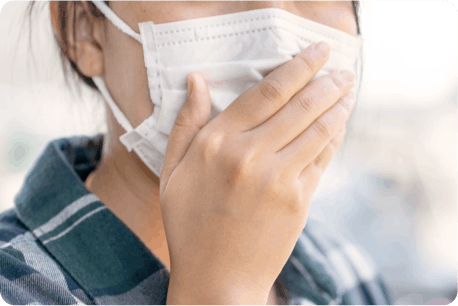What Triggers Asthma?
Asthma symptoms and attacks can be triggered by exposure to a variety of toxic and non-toxic elements, irritants in the air, activities, and conditions that can aggravate your lungs. Triggers vary between sufferers, so it’s best to know your own triggers and avoid exposure to them as much as possible.

Asthma Triggers
Here are some of the more common asthma triggers.

Smoking
Tobacco-based smoke is a significant trigger that asthma sufferers should avoid at all costs.

Food Sensitivities
Food allergies and sensitivities can adversely affect the immune system and trigger asthma symptoms.

Exercise
Strenuous activity can make asthma symptoms worse in some sufferers, causing wheezing and tightness in your chest while exercising.

Stress
Chronic stress can contribute to an increased risk of asthma attacks. Learning how to effectively manage stress can help reduce that risk.

Dust Mites & Insects
These microscopic bugs are found in almost every home in the U.S., and they generate allergens that commonly trigger asthma symptoms.

Allergies & Pollen
Allergens and pollen can trigger a reaction in your immune system that causes your airways to constrict and narrow, resulting in difficulty breathing.

Air Quality & Pollution
The toxic elements in air pollution can affect respiratory tracts and inhibit breathing.

Illnesses
Conditions such as the cold and flu, sinus infections, and even acid reflux, can trigger asthma symptoms.

Medications
A number of common prescription and over-the-counter medicines can have the unfortunate side-effect of triggering asthma symptoms.

Pets
Pet dander is another very common asthma trigger, and sufferers may experience an uptick in their symptoms when exposed to certain animals.

Strong Odors
Strong odors and fragances can potentially trigger asthma symptoms or make them worse.

Weather Changes
From high humidity levels in the summer to cold, dry air in the winter, changes in weather can trigger asthma symptoms.
Struggling to Manage Your Asthma Triggers?
Check out the Live Well with Asthma section of our site to explore different tips and tricks for managing your asthma. We're here for every breath. Explore different ways to manage your asthma triggers at home, school, and work with our resources and tips.

